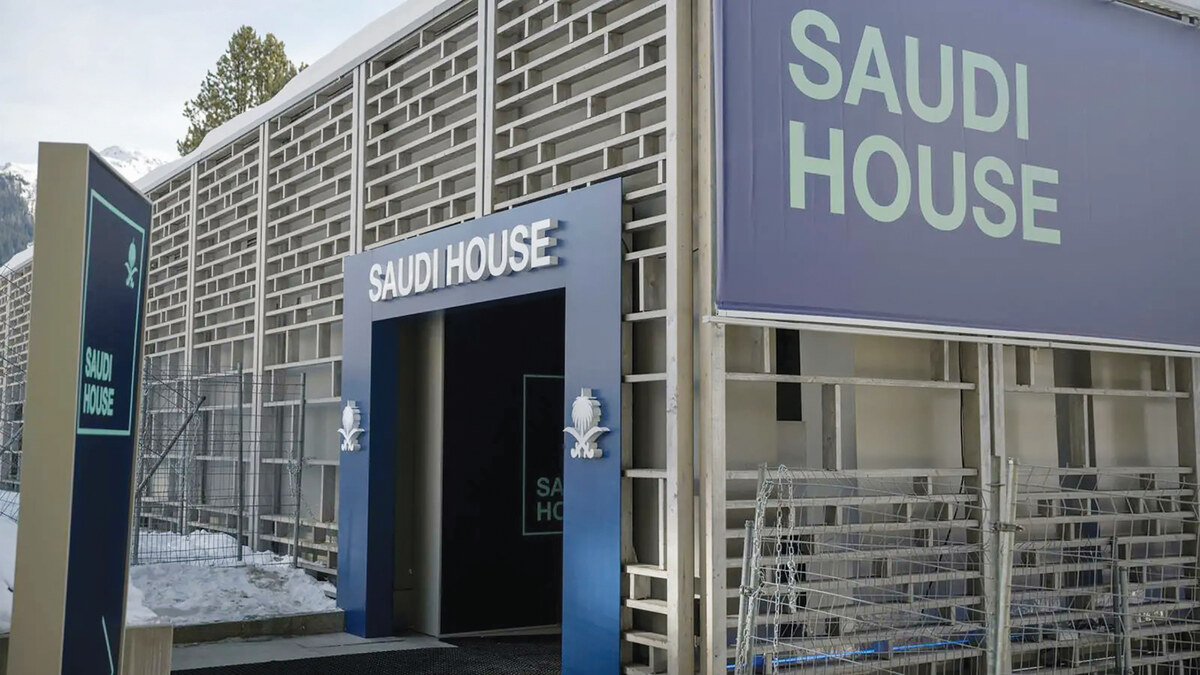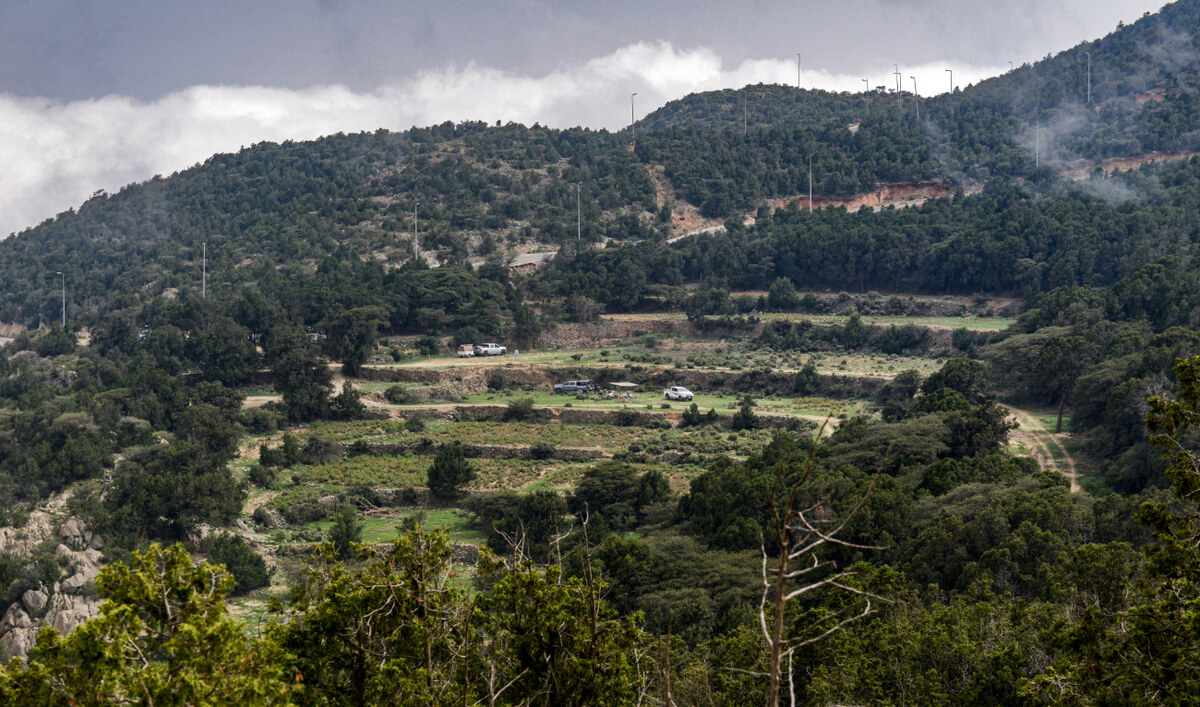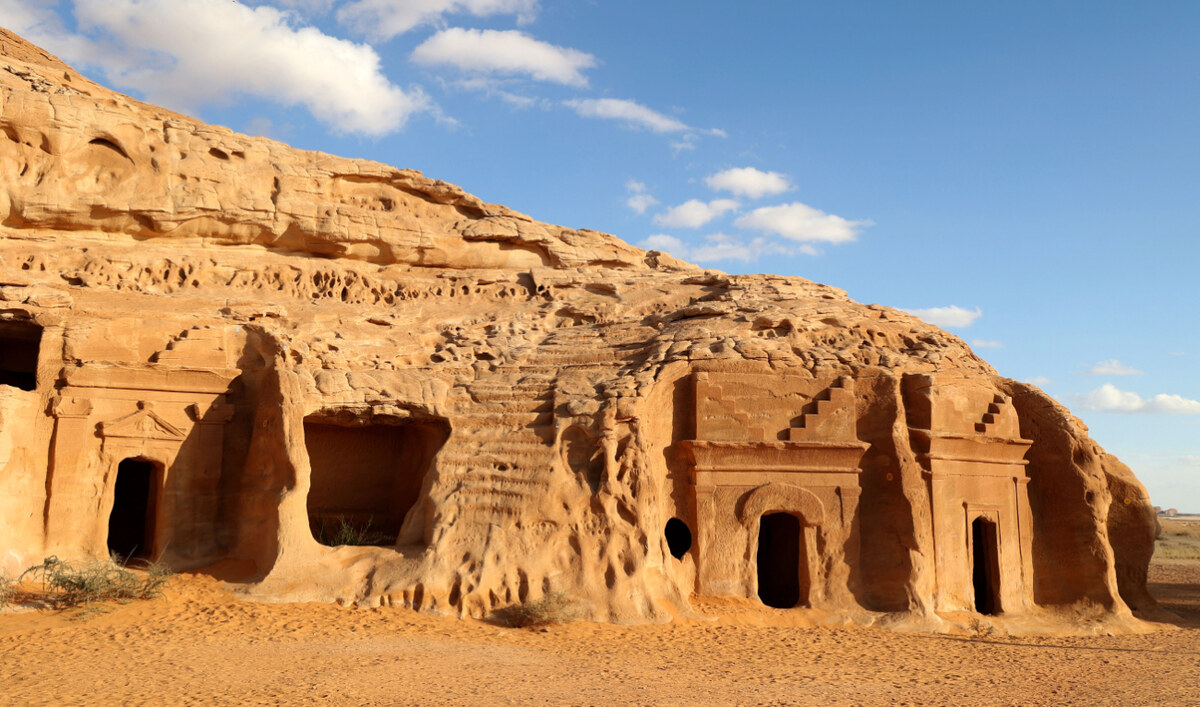LONDON: HSBC and Credit Suisse have been selected to advise on a possible merger between Ahli United Bank (AUB) and Kuwait Finance House (KFH), AUB said on Sunday.
A merger between Bahrain’s largest bank and Kuwait’s biggest Islamic lender would be the first cross-border tie-up between Gulf banks in recent years at a time when several other banks are consolidating.
HSBC and Credit Suisse were selected to complete studies to assist AUB and KFH in arriving at a fair share exchange ratio, the statement said, without specifying which investment bank was advising which lender.
If agreement on the share exchange ratio is reached, the next step would be the initiation of due diligence and other steps.
KFH said last week it had invited AUB to begin a due diligence process for a potential merger.
The deal provides a non-binding framework to explore the creation of “a major regional banking institution capable of competing more effectively in its existing and new potential markets,” AUB Chairman Hamad Al-Humaidhi said.
Separately, AUB also said its net profit for the second-quarter was $182.7 million, up 20.3 percent from a year earlier.
Shares in AUB rose 6.8 percent earlier this month to the highest levels since April 2017, and led to the Manama, Bahrain-based lender being valued at $5.66 billion.
KFH declined as much as 1.3 percent for a market value of about $12.8 billion.
Bahrain, which is a key Saudi Arabian ally and home to the US’ Fifth Fleet, hired investment bank Lazard to advise on how to boost its public finances, according to sources with knowledge of the matter.
HSBC, Credit Suisse to advise on Kuwait’s KFH, Bahrain’s AUB merger talks
HSBC, Credit Suisse to advise on Kuwait’s KFH, Bahrain’s AUB merger talks

- KFH declined as much as 1.3 percent for a market value of about $12.8 billion
Saudi EXIM Bank signs $15m deal with Pakistan’s Bank Alfalah to boost trade

RIYADH: The Saudi Export-Import Bank and Bank Alfalah have signed a $15 million financing agreement, strengthening access to Pakistani markets and boosting trade and economic ties.
The new credit line deal seeks to increase the flow and competitiveness of the Kingdom’s non-oil exports as well as unveil new trade horizons between the two countries, the Saudi Press Agency reported.
This falls in line with Pakistan’s efforts to strengthen trade and investment ties with the Kingdom, with the Saudi government reaffirming its commitment in September to fast-track a $5 billion investment package for the Asian country.
This also aligns with Saudi EXIM’s goal of diversifying the Kingdom’s economy by offering financing and insurance products for non-oil exports in support of Vision 2030.
“The agreement comes within the bank’s efforts to strengthen strategic relations with international banks and financial institutions to provide financing solutions that contribute to the development of Saudi non-oil exports and enhance their competitiveness in Pakistani markets, by encouraging importers from Pakistan to import Saudi products and services, which opens up broad prospects for the development of trade and investment between the two countries, and creates more promising trade and investment opportunities,” said General Director of the Finance Department at Saudi EXIM Bank Abdul Latif bin Saud Al-Ghaith.
The Group Head of Corporate, Investment Banking, and International Business at Bank Alfalah, Farooq Ahmed Khan, said: “The agreement between Saudi EXIM Bank and Bank Alfalah Ltd is a milestone in strengthening trade relations between the Kingdom and Pakistan.”
He added: “The financing line will enable Pakistani companies to access high-quality products in the Kingdom and will also enhance the volume of trade exchange between the two countries.
“We at Bank Alfalah are proud to play a pivotal role in promoting trade and investment opportunities that are in line with the shared vision to strengthen and grow the economies of both countries.”
In October, Saudi businessmen expressed hope for successful collaborations in Pakistan, saying the country’s economic stability and improved regulatory framework had made it an attractive investment destination, following the signing of over two dozen deals between companies from both nations.
Saudi Arabia qualifies 6 mining firms for Exploration Enablement Program

RIYADH: Saudi Arabia has chosen six local and international mining companies for its Exploration Enablement Program designed to boost investments and enhance the competitiveness of the sector.
Royal Road, Ajlan and Bros Holding, and EV Metals Group were selected for this first phase of qualification, as well as Ma’aden, Gold and Minerals Co., and Al-Masane Al-Kobra Mining Co., also known as AMAK.
These companies will receive key support as part of the government’s effort to attract high-quality investments and accelerate exploration activities within the Kingdom’s mining industry.
The EEP was launched at the Future Minerals Forum in January 2024 by Saudi Arabia’s Ministry of Industry and Mineral Resources, in collaboration with the Ministry of Investment.
A total of 49 applications were submitted from local and international mining companies, underscoring the growing interest in Saudi Arabia’s mining sector.
The government has earmarked SR685 million ($182.57 million) for the EEP between 2024 and 2030, which will fund initiatives to further strengthen the sector’s global competitiveness and create long-term strategic value.
The program aims to address gaps in geoscientific knowledge, foster local skills, and drive exploration for Class A minerals, including metallic minerals, precious and semi-precious stones, and ores requiring advanced operations.
Amman Stock Exchange eyes market boost with bond trading, tax reforms, and state firm listings

RIYADH: Jordan’s financial market is set for transformation, with key changes, including introducing government bond trading on the Amman Stock Exchange, revisiting taxes, and listing state-owned companies.
CEO of ASE Mazen Wathaifi outlined the key reforms to strengthen market confidence and stimulate trading activity during a panel discussion hosted by the Jordanian Businessmen Association, according to the state-owned news agency.
The reforms are part of a broader effort to align with Jordan’s Economic Modernization Vision, which aims to enhance the investment landscape.
Enabling government bond trading aligns with regional efforts to deepen debt markets, enhance market liquidity and attract global investment, as seen by Saudi Arabia’s recent reforms to debt instrument listings aim to boost investor participation and market efficiency.
Wathaifi said the steps being taken in Jordan would strengthen market confidence and stimulate trading activity, stressing the role of government policies in fostering investment and trading, adding: “We place significant reliance on government measures and decisions to enhance investment and activity in the ASE.”
The stock exchange has already implemented several initiatives to modernize its operations, including advanced electronic systems, a redesigned website, and a market development plan in partnership with the European Bank for Reconstruction and Development.
The Jordan News Agency reported that new tools such as the Total Return Index and electronic disclosure systems have been introduced alongside smartphone apps for real-time market monitoring.
Performance indicators for the ASE in 2024 revealed significant improvement, with the market’s General Index up 2.4 percent compared to 2023, while the Total Return Index surged 10.3 percent.
The market capitalization of listed companies increased by 4.2 percent, reaching its highest level since 2015, excluding 2022. Non-Jordanian investors held 47.1 percent of the total market capitalization, reflecting robust foreign interest.
Despite these gains, Wathaifi called for additional measures to reduce trading costs, foster investment funds, and encourage participation from banks and the Social Security Investment Fund.
He highlighted opportunities arising from expectations of declining global interest rates, easing tensions in Gaza, and improved conditions in Syria.
Mohammad Balbisi, vice president of the Jordanian Businessmen Association, echoed these sentiments, advocating for reduced taxes on public shareholding companies and the elimination of taxes on capital gains from stock and fund trading.
He also underscored the importance of public-private partnerships to drive large-scale development projects through the ASE.
Participants at the discussion highlighted the increasing regional competition to attract financial market investments, urging the government to introduce incentives, reduce fees, and restrict government bond trading to the ASE to draw global funds to Jordan.
WEF panel offers first impressions of Donald Trump’s new order

- Experts contemplate how the president’s ‘America First’ doctrine will mesh with the WEF’s globalist ethos
- Davos panelists predict a lighter touch on tech regulation, more protectionism, and greater unpredictability
LONDON: While world leaders, business titans, and policymakers gathered in Davos, Switzerland, for the opening of the World Economic Forum’s 55th annual meeting on Monday, all eyes were on Washington, where Donald Trump was being inaugurated for his second term.
This dual spectacle underscored the contrast between two seemingly opposing worldviews: Trump’s “America First” doctrine and the WEF’s globalist vision of “Collaboration for the Intelligent Age.”
The timing of Trump’s inauguration on the forum’s opening day seemed almost poetic. Experts noted the symbolic clash between the Davos elite, often described as the architects of a “new world order,” and Trump’s unapologetic brand of populism.
“Thank you to the World Economic Forum for having us, but most of all for having an exquisite sense of humor by asking us to say what’s going to happen in the Trump administration,” Sam Jacobs, editor-in-chief of Time magazine, quipped during the forum’s first panel, titled “First Impressions: Inauguration Day.”
This year’s conference invites participants to explore ways to tackle shared challenges like climate change, technology, and economic inequality through global collaboration. Yet, as economics writer Kate Andrews observes, it is “an idea that means little to nothing if the world’s largest economy — and leader in AI development — is not on board.”
Indeed, Trump’s policies are expected to pivot sharply from the multilateralism championed by the WEF. He has already signaled a return to “America First” economics, emphasizing trade protectionism and other barriers, which are likely to reverberate across the global economy.
Adding to this is his close alignment with US tech leaders, including Meta CEO Mark Zuckerberg, Tesla and X owner Elon Musk, and OpenAI CEO Sam Altman. Their collective support suggests that Trump’s new administration will embrace a less regulated approach to tech innovation, particularly in artificial intelligence, diverging from the more cautious frameworks championed by both former president Joe Biden and the WEF.
“I think the technology race is one that is going to be instrumental in that economic conversation,” Mina Al-Oraibi, editor-in-chief of UAE’s The National, told the panel, highlighting Trump’s likely focus on countering China’s influence in tech and trade.
Still, not all experts see Trump’s policies as a stark departure from those of his predecessor. Patrick Foulis, foreign editor of The Economist, noted that Trump’s strategies could echo some elements of Biden’s economic doctrine.
“Trump, in one sense, represents continuity, and in some sense, he’s actually the intellectual author of the Biden policy. But I think we have very, very solid grounds to doubt his ability to apply over a sustained period of time that kind of strategy,” he said during the panel.
The goal, Foulis argues, is for Trump to “exert more influence over the world economy,” relying less on incentives and more on coercive measures like debt manipulation, tariffs, and tech controls.
In what some view as an olive branch, WEF President and CEO Borge Brende said Donald Trump planned to deliver a 45-minute video address to the forum on Thursday.
The complex relationship between Trump and the WEF remains a study in contrasts. While Trump’s “America First” doctrine appears to run counter to the WEF’s globalist ethos, his presence — or lack thereof — consistently draws attention.
Despite ideological differences, Trump’s influence remains too significant for the forum to overlook. His pivotal role in brokering the recent Gaza ceasefire underscores his relevance on the global stage.
“We’re meeting here in Davos with a ceasefire finally in place in Gaza and after a terrible, devastating war over 15 months. It has changed the region, and in some ways, it changed the world. And Trump 2.0 actually facilitated the ceasefire,” Al-Oraibi said, adding that the “Trump factor” was instrumental in bringing a deal that the Biden administration failed to pull off.

“Trump clearly said there had to be a ceasefire before inauguration. And that moment crystallizes what people are expecting under a Trump administration. That comes with many lessons from its first stint at the White House, but also lessons learned about what can be possible in the Middle East.”
Over the past year, the Middle East has experienced seismic changes, including Hezbollah’s diminished influence in Lebanon and the fall of the Bashar Assad regime in Syria. Experts predict that while Trump’s foreign policy will in some ways build on Biden’s, the focus will be more on targeted economic strategies rather than broad hegemonic goals.
“I see the Trumpian agenda essentially as a more comprehensive and forceful expression of American power on a much more limited geographic scope,” said Foulis.
While Trump’s foreign policy appears increasingly selective and driven by economic interests rather than purely hegemonic ambitions, Al-Oraibi believes the Middle East will remain central to US priorities, particularly as attention on Gaza and Palestine shows little sign of waning.
“The fact that the ceasefire was put in place just before the inauguration of Donald Trump shows that they realize this is not something that they want hanging over their heads from day one, but it is a long road ahead,” she said, adding that the administration may want to take advantage of the momentum to bring about a solution to the Palestinian question and possibly promote a two-state solution.
“The one thing that is clear is the US remains the most important superpower,” she said. “Yet there’s still so much that can go wrong.”
Besides foreign and economic policy, the panel also explored how Trump’s new administration might handle energy and climate issues — both pillars of forum discussions. While a rollback of Biden’s green policies is expected, experts believe the energy transition has become too entrenched to reverse completely.
“If for Trump, that energy transition can be reframed as a nationalist cause, so something that benefits the American economy, I don’t think he’s going to oppose it,” said Jacobs.
As speculation builds around the consequences of Trump’s return to the Oval Office, many experts caution that lessons from his first term may only partially apply this time around.
What is certain, according to Jacobs, is that a Trump 2.0 presidency promises to be “200 times more unpredictable, and more volatile than the first term,” emphasizing that the real focus should be on “where points of tension emerge” rather than specific policies.
For the WEF, Trump’s presence offers both challenges and opportunities. As the world grapples with interconnected crises, Davos prides itself on providing a platform for critical dialogue. The stakes are high, however, and Trump’s return to power adds another layer of complexity to an already transformative moment in world history.

Saudi Arabia committed to embracing sustainability-driven growth in tourism sector, minister says at WEF

- Ahmed Al-Khateeb spoke in Davos ahead of launch of briefing paper on the future of travel and tourism sector
- He said Saudi Arabia continues to place a strong emphasis on supporting SMEs and entrepreneurs
DAVOS: The tourism sector in Saudi Arabia, which has undergone a transformative shift in recent years, must continue to grow with sustainable practices front and center, according to the country’s tourism minister.
Speaking at a media briefing on Monday attended by Arab News at the World Economic Forum’s annual meeting in Davos, Ahmed Al-Khateeb said it was vital the tourism industry embraced a sustainable agenda if it was to continue its upward trajectory without impacting natural environments and the communities living in them.
The Kingdom has been working with major global organizations, including the WEF, UN Tourism, and the World Travel and Tourism Council in order to achieve this, the minister said.
Al-Khateeb was speaking ahead of the launch of a WEF briefing paper on the future of the travel and tourism sector, as well as a new investor whitepaper from the Ministry of Tourism on investments in the sector, which showcases Saudi Arabia’s position as one of the fastest-growing tourism destinations globally.
He emphasized that the Kingdom was approaching sustainability from three key perspectives: environmental, economic and social. He added that focusing on the environment alone would not garner satisfactory results.

He said: “People travel to explore other peoples and cultures and to enjoy nature and the environment. If we don’t protect the environment, presented by nature, people will not travel. We need to ensure sustainability across all sectors — environmentally, economically, and socially.
“In 2019 we commissioned a study with the WTTC and Oxford Intelligence to analyze the sustainability of our industry, which revealed that our sector contributes to about 8 percent of global greenhouse gas emissions.
“While this isn’t as high as initially feared, it’s still a concern. If we don’t come up with the right tools to reduce this in the best-case scenario, or at least maintain this, with the very high and fast growth of our industry in the next decade, we’re afraid this number will double to 15 or 16 percent in the worst-case scenario.”
The Kingdom has already begun addressing these concerns by launching campaigns to reduce food and water waste, in conjunction with hospitality chains like Hilton and Marriott. And in 2023 it spearheaded initiatives such as the Sustainable Tourism Global Center, working with international organizations like the UN and the WTTC to promote responsible tourism practices worldwide.

From the economic perspective, Al-Khateeb highlighted how important small and medium-size enterprises were to the sector, making up 80 percent of the global tourism industry.
Ensuring the viability of these SMEs was crucial as the sector grows, especially thanks to their job-creation potential, he said. This was increasingly the case for women, including in Saudi Arabia where a milestone 25 percent of tourism sector jobs in 2023 were held by females, he added.
Saudi Arabia continues to place a strong emphasis on supporting SMEs and entrepreneurs, which includes initiatives to train and support the next generation of tourism leaders, with 100,000 Saudis being trained annually through a partnership with UN Tourism, Al-Khateeb said.

He added: “We’ve funded over 1,500 small businesses through the Saudi Tourism Development Fund over the past two years, and we continue to make the sector more attractive as a viable business opportunity for entrepreneurs.
“I am very optimistic. We want to further promote the sector, for it to prosper and to grow. We want to make this sector more important in Saudi Arabia, and we took a decision to invest in the sector to open it up.”
With the value of the global tourism industry expected to grow to $11 trillion by 2030, Al-Khateeb said that Saudi Arabia recognized the importance of both government and private sector collaboration, adding: “(Governments) design, but (the private sector) implement, they invest, they take the risk.”
He added: “The private sector is very important in our industry: It’s run by the private sector and we believe and we know in Saudi Arabia how important it is. That’s why we invited the private sector for the first time to join the G20 meetings held in Riyadh, and since then they have been joining all of them.”






















